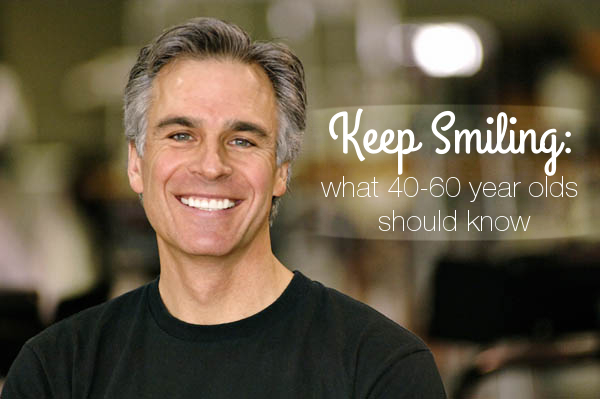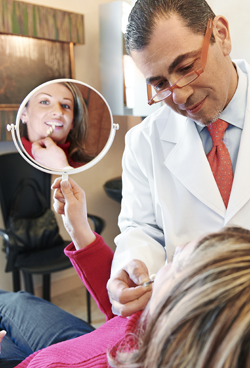
If you’re between 40-60 years old, you have unique concerns with regards to your oral health. Here’s what you should be paying attention to.
1. Gum Disease
Gingivitis is the first and only stage of gum disease that is reversible. If not treated properly, gingivitis can develop into periodontitis—a serious, destructive disease. Some people with gum disease show no visible signs until the damage has been done, which is why regular dental visits are crucial. Brushing properly and eating well is important as well.
2. Missing Teeth
Many adults have missing or decayed teeth, which is detrimental to oral health! If you have gaps between your teeth, it can affect how you speak and eat. Missing teeth can affect proper chewing, cause the other teeth to shift, and sometimes even bone loss can occur. Here at Sirakian Aesthetic & Implant Dentistry we offer several solutions for missing teeth.
3. Sensitivity
Do hot or cold foods make you wince? This could be a sign of increased dental sensitivity. This could be because of cavities, fractured teeth, improper fillings, gum disease, enamel problems, or an exposed tooth root. All of these can be treated. There are desensitizing toothpaste options and other alternative treatments your dentist can suggest after determining the cause of your sensitivity.
4. Dry Mouth
Saliva is essential for oral health. Did you know saliva has enzymes that protect against cavities? If you have dry mouth, it’s a problem that should be addressed. There are ways to treat dry mouth!
5. Oropharyngeal Cancer
Oral cancer can happen in any area of the mouth cavity: lips, gums, cheeks, tongue, jaw, palate, and throat included. It usually appears as a small, almost unnoticeable spot or sore. Your dentist can check for any signs of cancer and discuss your health history. Many times suspicious changes will be unnoticeable to you, which is why a health care professional should check up your mouth regularly. Some symptoms of oral cancer are sores that bleed/don’t heal, a hard spot/lump, a roughened area, numbness in an area, tenderness in an area, or a change in the way your teeth feel when you bite. Tell your dentist or schedule an appointment if you have any problems with chewing, swallowing, speaking, or moving any part of your mouth/jaw.
Cavities don’t stop when you grow up– they’re something that need to be prevented actively throughout your lifetime. Always brush your teeth twice a day and floss at least once a day, and make sure to schedule regular appointments with your local dentist!








